Edumail News Digest [July-07-2014]
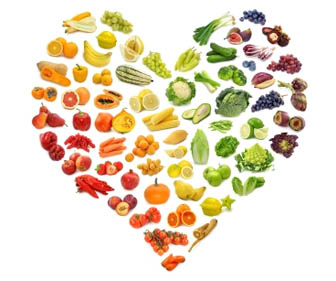 We're looking out for you! Here is some "good for you" information from recently published research.
We're looking out for you! Here is some "good for you" information from recently published research.
Fruits and Veggies Reduce Risk of Stroke
Yes. We know. You've heard it 100 times. But now there's even more substantial evidence that eating more fruits and vegetables is good for you.
The latest research, involving 20 published studies of over 760,000 men and women showed that increased consumption of fruits and veggies may reduce the risk of stroke.
The meta-analysis, which appeared in the American Heart Associations' journal, Stroke, found that stroke risk decreased by 32 percent with every 200 grams of fruit consumed each day and 11 percent with every 200 grams of vegetables consumed each day.
The beneficial effects applied consistently to men and women, stroke outcome and by type of stroke (caused by clot or bleeding) and regardless of age.
Researchers combined the results of six studies from the United States, eight from Europe and six from Asia (China and Japan). The World Health Organization says that stepping up the consumption of fruits and vegetables up to 600 grams each day could reduce the burden of ischemic stroke globally by 19 percent.
Calcium Supplements Get Safety Thumbs Up
Is taking calcium supplements safe? Absolutely, if you go by a new study which appeared in the May issue of the scientific journal, Osteoporosis International.
A review of more than 74,000 women in the Nurses' Health Study—with 24 years of follow-up-found no association between supplemental calcium intake and risk of coronary heart disease (CHD) and stroke.
The conclusion counters results from a New Zealand study that suggested an increased cardiovascular disease risk from calcium supplementation. It is the fourth study in 18 months to reaffirm calcium's safety in line with the total body of scientific research.
Duffy MacKay, ND, senior vice president, scientific and regulatory affairs at the Council for Responsible Nutrition, said, "Calcium is an essential nutrient most widely used for its bone health benefits, and government data show most Americans don't get enough. We encourage continued studies on calcium's safety and benefits, but this study should help women feel confident that calcium supplements are an appropriate choice if they are not getting enough from food alone."
Zinc Zaps Diarrhea
Zinc supplements cut episodes of diarrhea and other infections in malnourished children, say researchers who analyzed data from 80 trials involving more than 200,000 kids aged between six months and 12 years.
Zinc may even prevent death in these children who were mostly in low and middle income countries, according to a study published in The Cochrane Library.
The human body cannot make zinc, so it has to come from our diet. It is estimated that more than 1 in 6 people globally are deficient in zinc and that around 1 in every 58 deaths in children under five is related to zinc deficiency.
Throw Away the Ambien?
If you're one of the millions of America's who tosses and turns every night there's an alternative to chamomile (or Ambien) that you might want to consider. It's drinking tart cherry juice!
Research presented at the Experimental Biology 2014 meeting revealed that drinking the juice twice a day can help you sleep nearly 90 more minutes a night.
It was a very small study—seven older adults who were insomniacs drank eight ounces of the juice twice a day for two weeks, followed by two weeks of no juice, and then two more weeks of drinking a placebo beverage. Compared to the placebo, drinking the cherry juice resulted in an average of 84 more minutes of sleep time each night.Â
Why could that happen? Cherry juice is a natural source of the sleep-wake cycle hormone melatonin and amino acid tryptophan, says study coauthor Frank L. Greenway, of the Pennington Biomedical Research Center at Louisiana State University.
Reducing the Risk of Bone Fractures
Senior citizens can help protect themselves against common bone fractures by taking a combination of vitamin D and calcium.
Reviewers led by Alison Avenell, M.D. at the University of Aberdeen in the UK evaluated 53 studies with more than 90,000 participants.
Among low-risk seniors who live in the community, those who consumed vitamin D with calcium had one less hip fracture per 1,000 older adults per year. For seniors living in high-risk environments of nursing homes and hospitals, there were nine less hip fractures per 1,000 older adults per year.
"We did not expect to find an effect from vitamin D alone, as this has been a consistent finding from previous reviews," said Avenell.
The National Osteoporosis Foundation says that about one in two women and one in four men age 50 and older will break a bone as a result of declining bone health.
Commenting on the study, Robert Heaney, M.D, of the Creighton University Osteoporosis Research Center, said, "Most individuals in Europe and North America are deficient in both calcium and vitamin D. Giving one or the other, by itself, will help only those who have the single deficiency, not the double deficiency."
It makes sense that giving both is more likely to be of benefit, he added.
 For over 14 years, we have made it our mission to collaborate with innovative practitioners, nutritional experts, and scientists to realize their concepts and ideas into life changing products and applications. This cultivated group called "The Founding Scientists," is what makes GHT the unique, robust and respected organization in industries of nutrition and health.
For over 14 years, we have made it our mission to collaborate with innovative practitioners, nutritional experts, and scientists to realize their concepts and ideas into life changing products and applications. This cultivated group called "The Founding Scientists," is what makes GHT the unique, robust and respected organization in industries of nutrition and health.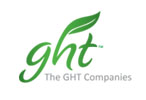
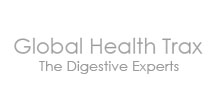

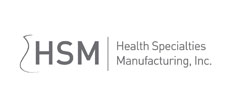




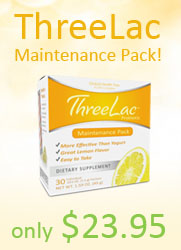
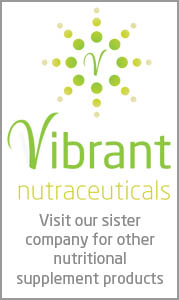
 We're looking out for you! Here is some "good for you" information from recently published research.
We're looking out for you! Here is some "good for you" information from recently published research.




